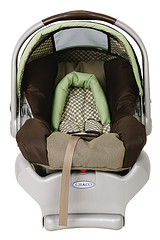 Let’s start with a hypothetical story: A young couple, their newborn child, and both sets of grandparents decide to book the family cruise they have been talking about for years. Why now? One of the baby’s grandfathers has been diagnosed with bone marrow cancer and the family wants to spend some relaxed quality time together before his dangerous and complicated treatments begin.
Let’s start with a hypothetical story: A young couple, their newborn child, and both sets of grandparents decide to book the family cruise they have been talking about for years. Why now? One of the baby’s grandfathers has been diagnosed with bone marrow cancer and the family wants to spend some relaxed quality time together before his dangerous and complicated treatments begin.
Unfortunately, this family is going to have some trouble booking a cruise.
Many cruise lines have minimum age restrictions and policies dictating the health of passengers prior to sailing. Specifically, most cruise lines (including Royal Caribbean, Princess, Carnival and others) set a minimum age at 6 months and for many transatlantic trips, the minimum age is 1 year. The Disney Cruise Line sets a minimum age of 12 weeks.
The reason for this is that the company operating the cruise lines has researched safety and medical options for their passengers. When medical care is deemed difficult to obtain either by onshore facilities or through the on-board medical team, and of course it would be for infants, then the company deems it too risky for those travelers.
The same is true for pregnant passengers. Because pregnant travelers are more likely to need medical care, cruise lines restrict pregnant travelers from sailing if pregnant for 24 weeks or less at the start of the cruise. Many cruise lines require pregnant travelers to send a medical certificate indicating their due date prior to embarkation. Similar to age policies, you’ll need to check your individual cruise line’s policy for more information.









